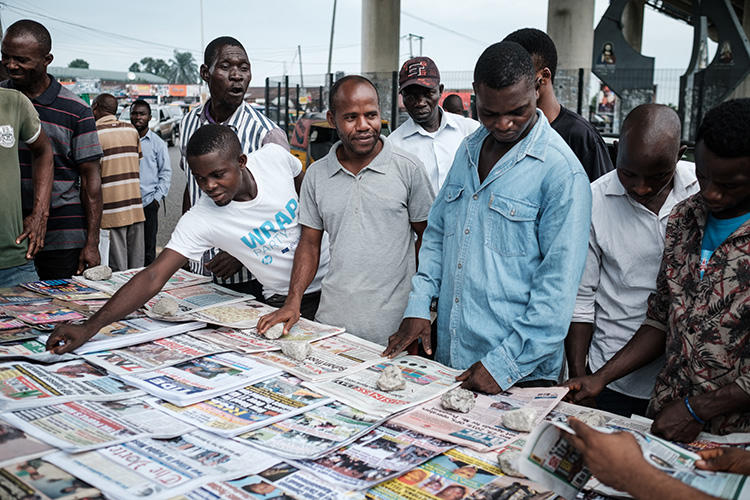Owoidoho Udofia and Okodi Okodi, two journalists with the privately owned Inspiration FM radio station in Akwa-Ibom State, in southern Nigeria, on September 24, 2019, were forced by police to take off their shirts and roll on the ground, and were beaten with sticks after covering a protest in Uyo, the state capital, according to the journalists and a report by the local, privately owned Premium Times online newspaper.
Udofia and Okodi told CPJ over the phone that they sustained injuries from the beating. Udofia said his left eye was swollen for days and Okodi said he suffered from back pain. The two journalists said they were attacked after covering a protest in the Mbierebe Obio community of Akwa-Ibom State that was demanding justice for a youth allegedly killed by police. Part of their coverage included an interview with Macdon Odiko, the Akwa-Ibom police spokesperson, about the alleged police killing, Okodi told CPJ.
Following the interview with Odiko, the journalists said they were on their way to their vehicle to return to their office to edit some video footage when a group of police officers stopped them, forced them into a police van, and took them to the local police station.
At the station, Udofia told CPJ the officers made them take off their shirts, roll on the ground, hit them with heavy sticks as they pleaded to be freed and repeatedly identified themselves as journalists on duty. He said the police officers had identified Okodi as covering the protest live for the radio station and having posted details of the protests on his Facebook page. The attack lasted 30 minutes, during which the police officers interrogated them about the questions they asked Odiko; the journalists were released only after Odiko arrived at the station and intervened, Udofia said.
When contacted by CPJ over the phone, Odiko asked to be sent questions by text message, but did not reply to subsequent messages. CPJ also direct messaged via Twitter questions to the Nigerian Police Complaint Rapid Response Unit, but received no response by the time of publication.
In recent months, journalists covering protests in Nigeria have been attacked and arrested. In August, police detained at least four journalists covering protests that took place across the country, and in July, Precious Owolabi, a reporter for the privately owned Channels TV, was shot and killed while covering a protest in Abuja, Nigeria’s capital, according to CPJ reporting.
